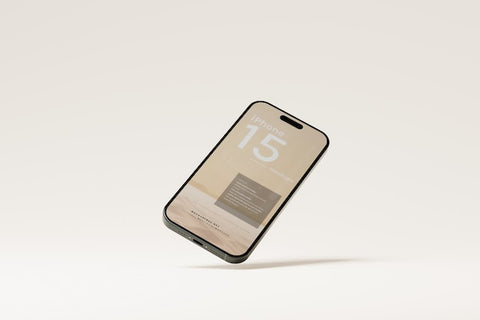Are Smartphones Better Than Cameras In 2023?

At the tail end of September, the new iPhone 15, iPhone 15 Plus, iPhone 15 Pro, and the iPhone 15 Pro Max hit our stores, and all other products had to be moved to the store room.
Each new iPhone offers something a bit different, and one of the features many users have noticed about the iPhone 15 Pro and Pro Max is the incredible new camera system.
The Pro packs a huge 48-megapixel camera, complete with 100% focus pixels, and support for super-high resolution photos. It also has a 12-megapixel ultra-wide camera, with 120 field-of-view and a digital zoom of up to 25x.
In simple speak: it’s pretty great. And it’s even led some photography lovers to say that smartphones have finally overtaken the traditional DSLR camera. So, have they? To answer that question, let's look into what smartphone cameras can give you over a traditional camera.
A Question Of Connection
First off, this isn’t just about the specs. Before we get into quality, it’s important to factor in everything, from connection to convenience. For people who enjoy printing their photographs, or who simply want to post them on Instagram, we'd have to say the smartphone takes the cake.
It offers the shortest amount of time between shooting and presenting – one tap to get to camera mode, a few taps to post on Instagram, and then the ability to create a photo book in 2 clicks. For cameras, however, the process is a little more long-winded, involving apps, dropboxes, SD cards, and cables.
A Question Of Convenience
Smartphones also win on convenience. As mentioned before, not only is it easier to post or print your photos with a smartphone, but it’s also more convenient to capture them. This is especially true if you take in-the-moment photography.
Not everyone has the patience to carry a heavy camera around with them just in case a good photo opportunity comes along. In many ways, smartphones are the reason for so many iconic photographs over the last few years, simply because they have become daily companions to our everyday lives. As well as this, you can download the best photography apps in just a few seconds, all of which can open up new possibilities and help you become a better photographer.
A Question Of Price
This is a bit of a tricky one, as the price of cameras and smartphones differ depending on quality. High-end smartphones like the new iPhone 15 Pro Max come in at an eye-watering $1,199, while a high-end camera like the Nikon D850 comes in at $1,659. Overall, however, it’s fair to say that smartphones win this round too, because everyone needs a smartphone.
In 2023, they’re an essential purchase, so you might as well spend a little more to get a high-end smartphone camera, and subsequently save on the cost of a DSLR camera. Also, keep in mind that $1,199 is top of the range, but the gap between good cheap phones is not so huge. For around $700, you can get a perfectly great phone with a perfectly great camera system.
A Question Of Quality
Okay, now we can talk about quality. Ahem, cameras win. Sorry, they just do. To directly compare them, while the new iPhone Pro and Pro Max have 48-MP, the best DSLRs have 60-MP. They also have better sensors, faster lenses, more manual controls, they last longer, and they can shoot in RAW.
For more detail-oriented photographers, you can also toggle settings, shutter speed, ISO, aperture, and more to a far greater extent. So, if you want sharper and clearer pictures to upload to a photo book maker, you’re more likely to get them with a traditional camera over a smartphone.
A Question Of Personality
But, to round this off, we should mention that it all comes down to personal preference. There is no right or wrong answer to the question, ’Are smartphones better than cameras?’ Everyone has a different personality. While smartphones offer a lot for photographers, some people just like the feeling of shooting on a traditional camera.
Similarly, while traditional cameras are still leading the race in terms of quality, some people are happy with lower quality but better accessibility and convenience. In other words, this is not a battle. In the world of photography, smartphones and cameras should live together in harmony, with pros and cons to each of them. Isn’t that a sweet note to end on?





